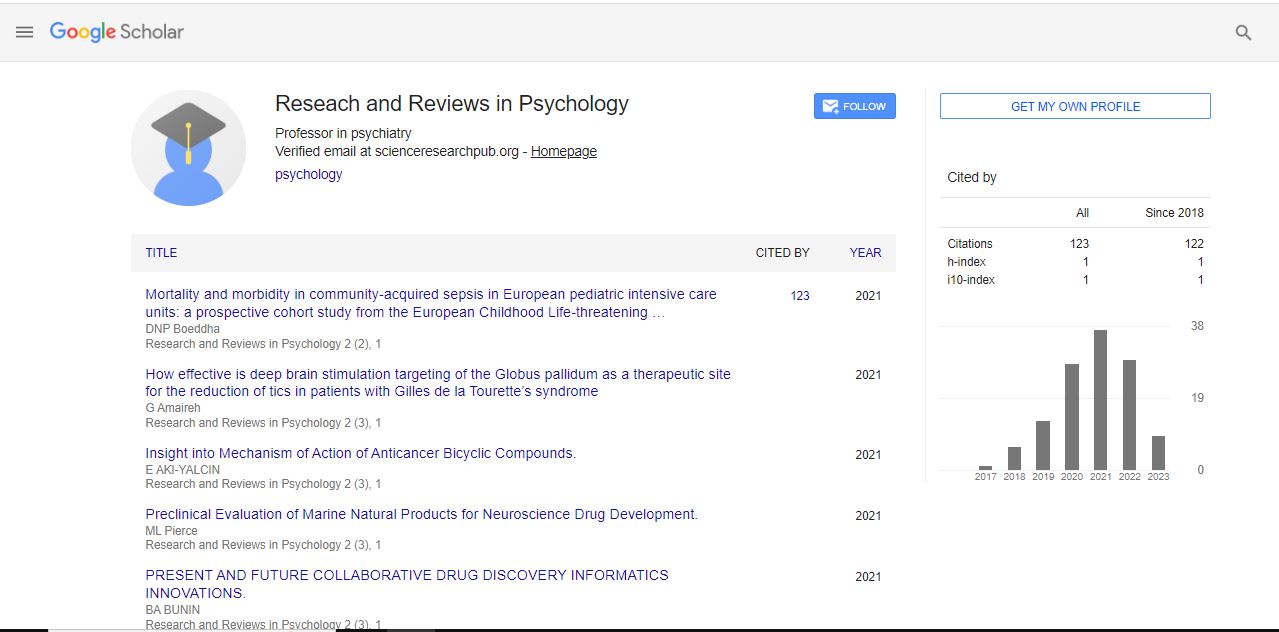Perspective, Res Rev Phys Vol: 4 Issue: 1
Analyzing Educational Psychology: Its Importance and Applications in Modern Education
Fong Daniel*
Department of Educational Psychology, University of Texas at Austin, Austin, USA
*Corresponding Author: Fong Daniel
Department of Educational Psychology, University of Texas at Austin, Austin, USA;
E-mail: daniel.f@gmail.com
Received: 04 March, 2023, Manuscript No. RRPY-23-93543; Editor assigned: 06 March, 2023, PreQC No. RRPY-23-93543 (PQ); Reviewed: 20 March, 2023, QC No. RRPY-23-93543; Revised: 27 March, 2023, Manuscript No. RRPY-23-93543 (R); Published: 06 April, 2023 DOI: 10.4172/rrpy.1000327.
Citation: Daniel F (2023) Analyzing Educational Psychology: Its Importance and Applications in Modern Education. Res Rev Phys 4:1.
Description
Educational psychology is a branch of psychology that focuses on studying how people learn and educational systems work. It examines the processes involved in learning, the various factors that influence learning, and teachers can produce effective learning environments.
Importance of educational psychology
Educational psychology plays an important role in understanding how people learn and educational systems can be improved. Some of the reasons why educational psychology is important are:
Understanding learning processes: Educational psychology helps to understand the various processes involved in learning, such as memory, attention, perception, and motivation. This knowledge can be used to develop effective teaching methods that provide different learning styles and needs.
Creating effective learning environments: By understanding the factors that influence learning, educational psychologists can help teachers create effective learning environments. This includes factors such as classroom design, seating arrangements, lighting, and temperature.
Improving teaching methods: Educational psychology can help teachers develop effective teaching methods that provide different learning styles and needs. For example, teachers can use visual aids, group work, and hands-on activities to engage students and enhance their learning.
Enhancing student motivation: Educational psychology can help teachers understand the factors that motivate students to learn. This includes factors such as intrinsic motivation, extrinsic motivation, and self-efficacy. By understanding these factors, teachers can provide a learning environment that encourages students to take an active role in their education.
Applications of educational psychology
Educational psychology has several applications in modern education. Some of these applications are:
Curriculum development: Educational psychologists can assist in the development of curriculum that is based on sound learning principles. This includes identifying the learning outcomes, selecting appropriate teaching methods, and developing assessments that measure student learning.
Teacher training: Educational psychologists can assist in the training of teachers by providing them with the knowledge and skills they need to create effective learning environments. This includes training in classroom management, teaching methods, and assessment.
Student assessment: Educational psychologists can assist in the development of assessments that measure student learning. This includes developing tests that are reliable, valid, and fair, as well as developing alternative forms of assessment such as portfolios and performance tasks.
Learning interventions: Educational psychologists can assist in the development of interventions that help students who are struggling with learning. This includes interventions such as tutoring, remedial classes, and academic counselling.
Educational psychology investigates the mechanisms of memory, conceptual processes, and individual differences (through cognitive psychology) in order to conceptualize new learning strategies in humans. Theoretical foundations of educational psychology include behavioral modification, functionalism, social constructivism, social constructionism, humanistic psychology, Gestalt psychology, and processing of information.
In the last twenty years, educational psychology has seen rapid development and growth as a field of study. In the early twentieth century, educational behaviorism started with the concept of intelligence testing, which occurred to requirements for special education students unable to implement the regular classroom curriculum. Another major focus of developmental psychology was to improve conditions for minority children, as the movement against institutional racism and discrimination became increasingly recognizable in the early to mid-twentieth century. Educational psychology develops and appears to apply concepts related to human development to effectively understand the characteristics of learners in childhood, adolescence, adulthood, and old age. Developmental theories, which are frequently characterized as different phases and the process is performed as they mature, characterize modifications to cognitive abilities (learning and memory), social roles, moral reasoning, and opinions on the existence of knowledge.
 Spanish
Spanish  Chinese
Chinese  Russian
Russian  German
German  French
French  Japanese
Japanese  Portuguese
Portuguese  Hindi
Hindi 